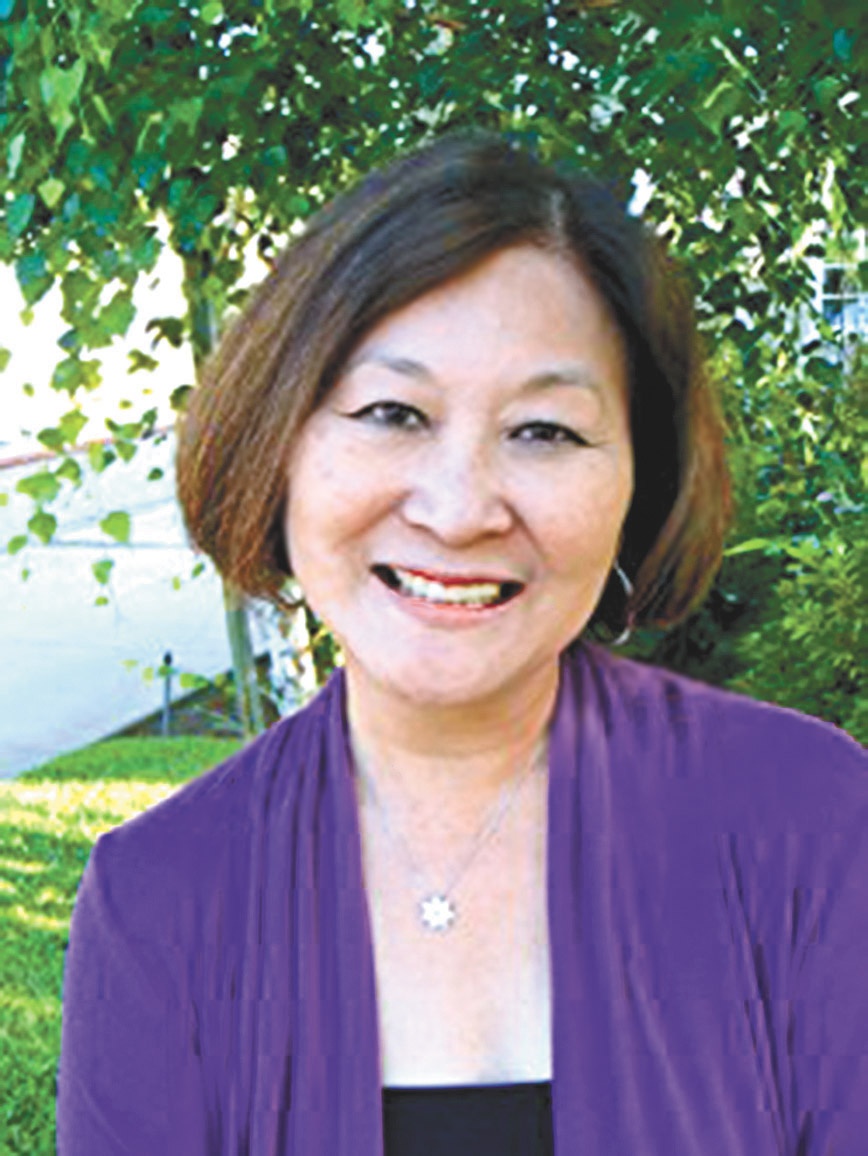
Marsha Aizumi
By Marsha Aizumi
At Okaeri 2018, Jeri Okamoto, a wonderful ally of the LGBTQ community and dear friend, gave me a book called “The Great Work of Your Life.” I put the book aside because I received it right before Thanksgiving. The holidays are generally not the best time for me to read, but right after the new year, I decided to pick it up.
I ruffled through the pages, skimmed the table of contents and then thought this book was exactly what I needed to start 2019. So, with my highlighter in hand, I grabbed a blanket, cuddled up on the sofa and began to read. I found myself highlighting sentence after sentence, wanting to read each page very slowly to absorb all that the author was trying to convey. After I finished reading it, I turned right around and began to read it again. I am now on my third read through.
I was first captured by the thought that this book could help me with my LGBTQ work, since the subtitle was “A Guide for the Journey to Your True Calling.” Many of you may have found your true calling early in life. It has taken me 60 years to find mine. And so as I read, I would highlight things that confirmed I am on my sacred path or, as the book calls it, “my dharma.”
So many chapters resonated with me, but the one that really struck a chord was Chapter 9, titled “When Difficulties Arise, See Them as Dharma.” Difficulties lead you to your sacred path? How could that be? Yet, that is what my journey of the past 60 years has prepared me for … being a voice for the LGBTQ+ community. This is my dharma.
I was sharing this concept with my brother, Marty, who has been dealing with some health issues. As a result of his diabetes, he is now on dialysis because his kidneys are not functioning properly. Dialysis removes waste, salt and extra water, keeping your body at a safe level of certain chemicals that are in your blood.
Initially, he went to a clinic and was hooked up to a machine for three and a half hours, three times a week. Now, he decided that he wanted to do dialysis at home. So, after extensive training, he has transitioned to doing dialysis himself every night while he sleeps for about 9 hours.
He shared that when he first got the news of his weakening kidneys, he thought, “Woe is me, another thing to deal with,” and finally, “Why is this happening to me?” But as we talked, I said, “You don’t seem miserable, depressed or resentful now. What happened?”
Marty explained, “Well in the beginning, I was anxious and uncertain, but I remember a saying, ‘Suffering is optional.’ And so, I decided if I needed to be on dialysis, I would find a way to make the experience positive.”
Initially, Marty would watch an uplifting video or write thank-you notes while at the dialysis clinic. In spite of his situation, he said things could be worse, and so he was grateful that there was a way for him to keep living a good life. Many of his thank-you notes were to people who supported him and gave him hope. He would also bring snacks for the nurses who took good care of him with compassion and patience. Being grateful made him focus on what was going right in this challenging time.
Marty also educated himself so that he could make the best possible decisions for his care. Now at home, he says he has more flexibility during the day because he doesn’t have to do dialysis at the clinic 15 hours per week.
In a couple of months, we are going to Las Vegas to meet up with some family. Marty will be going with Tad and me along with five days of dialysis equipment. Having this difficulty has not stopped him from doing things he wants to do.
He also shared with me that he wished that he had someone for support during the initial diagnosis and subsequent procedures he had. And so we are not sure if this is his dharma, but he has volunteered to be a listening ear for others who might have to go through some of the same things that he went through and also be part of a support group that may be starting soon in the Pasadena area.
If you want to connect with my brother because you are faced with dialysis and need someone to talk to who has walked this path already, please email me at maizumi8888@gmail.com.
Oftentimes, we are led to our dharma by challenges, and only by leaning into difficulty do we find the place where our voice can make a difference. I believe that my brother has not run away from his difficulties or allowed the negative voices in his head to make him depressed and full of hopelessness.
Marty’s dialysis treatments have led him to discover that he still has much to live for and so much to offer. He plans to live his life to the fullest, not allowing dialysis prevent him from doing the things he loves.
Dolly Parton once said, “Find out who you are and do it on purpose.” I think Marty has discovered more of who he is, and each day, he doesn’t take life for granted but chooses to live with intention and gratitude. I am so proud of my brother.
Marsha Aizumi is an advocate in the LGBT community and author of the book “Two Spirits, One Heart: A Mother, Her Transgender Son and Their Journey to Love and Acceptance.”



